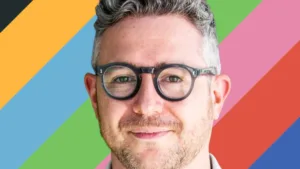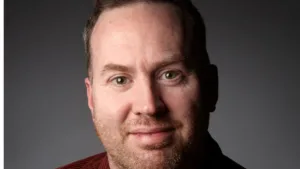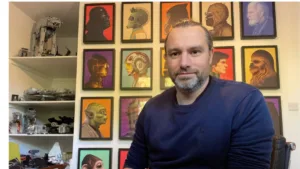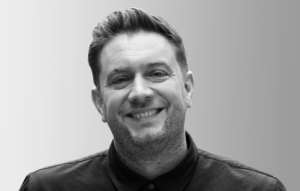We’re asking some of our industry’s leading figures to nominate their digital hero and to explain what’s so special about them.
The inimitable Faris Yakob is a strategist, creative director, and founder of GeniusSteals LLC, an ideas & innovation consultancy. He’s been chief digital and innovation officer at multiple leading agencies, won endless awards, was named one of the most respected planners in the world by his peers in The Planning Survey, and one of 10 modern day Madmen by Fast Company.
Who is your digital hero?
Russell Davies, Darth Strategist, Undermanager, planning legend, blogging pioneer, head of strategy at various ‘very good agencies’ of different flavors, and Nike and the Government Digital Service. He is apparently the CMO at an energy company now.
I have never worked with him directly, except I suppose at a couple of speaking gigs, but few people have had more of an impact on me and, indirectly, my career. I also imagine that he will not enjoy this plaudit, but I could be wrong.
What have they done to win hero status in your eyes?
I spent much of my career in advertising as a planner or strategist. For me, the discipline lacked community before Russell. His blog was directly responsible for me and many of us starting to think out loud and find each other by doing the same.
More, he was the head of planning at one of the best advertising agencies doing some of its most famous ever work [W&K London] and he took the nascent interweb seriously way back when, putting on talks in the office in afterhours just to share cool things he had discovered.
Like any good digital thing, he kept iterating, trying new ideas, like the global micro business the Open Intelligence Agency. At GDS he helped usher in a new way of thinking about governments interacting with their citizens, and his thinking still permeates how they operate and present themselves.
How has their heroism helped drive digital?
By taking it both seriously and by continuing to ‘muck about on the internet’ as he used to say. A great example is his bot Taglin3r, which is both hilarious and very serious. It generates a new tagline every hour on the hour and has been doing so for a couple of years. Some are bad, some are not, all are free, which is obviously a lot less than an agency would charge.
His point is not that agencies are obsolete, but that they should take advantage of these tools, and focus on the areas that most require human creative judgment and talent. Last year he made one 4 minute 41 second podcast a week. And so on.
So many things he wrote impacted how we all talk and think. To give but one example, he wrote “death to innovation” in 2013, pointing out that agencies and marketers keep “banging on about innovation. Sony are probably demanding innovative and compelling digital communications solutions from their staff, partners and agencies. They should stop all that and fix their broken website.”
Now much of the digital agency segment is looking to pivot to customer experience, to fix those broken web sites and disjunctive services.
What are the biggest challenges in digital we need another hero to solve?
The biggest single issue is that the infrastructure of the web has become commercially predicated on surveillance and manufacturing addiction which, as we have seen, is making everyone feel unwell and being used to shape political discourse in extremely concerning ways.
This has real consequences that are currently playing out, eroding our shared consensus reality and opening doors to demagogues, all over the world.
5. What is your most heroic personal achievement so far in digital?
I have done nothing heroic. I have worked on and led many digital campaigns that tried to foster the participatory culture that the web used to cherish and embrace the idea of offering people value not just messaging. However, campaigns are ephemeral, digital ones even more so, and no one remembers them except other, perhaps, ad people.
More substantially, I took digital thinking into very large traditional advertising agencies, was the founding partner of an early creative technology studio for one of the holding companies, and wrote a piece for General Assembly that is still often referenced that defined “digital brand strategy”.
(I recently found out it seems to have led to my headshot being used as a talking head image on their coding classes, which is very weird and very digital).
The most valuable thing I think, if anything, was writing my book, which is a distinctly analogue piece of work that grew out of nearly a decade of blogging: Paid Attention: Innovative Advertising for a Digital World.
At least once a week someone will mention somewhere on social that they found it valuable, or refer to it often, and I can’t ask for more than that, as an author and consultant.
As an ongoing digital resource, we publish Strands of {Stolen} Genius every week providing brief bits of inspiration in your inbox. People tell us they like it and find it useful and it was named one of the top 3 community resources for planners in the world [Planning Survey] and one of 7 essential reads for the curious creative [HubSpot].









